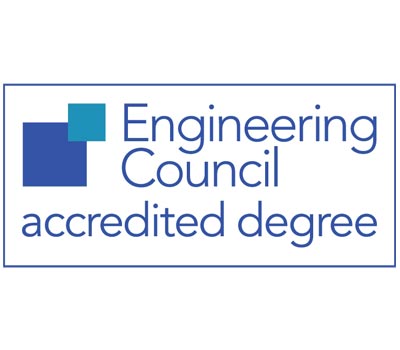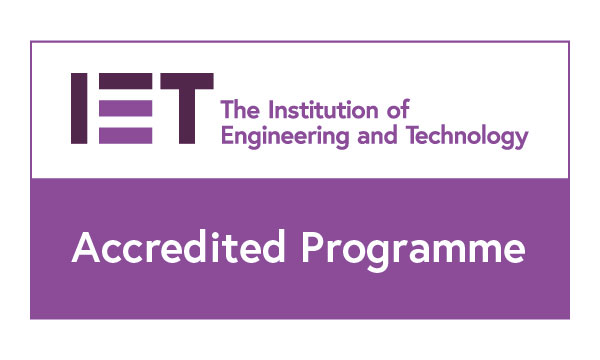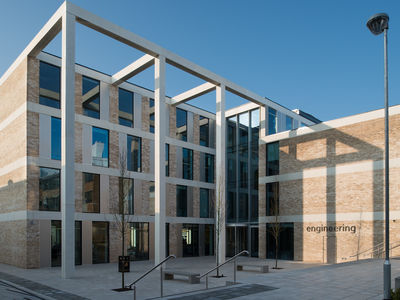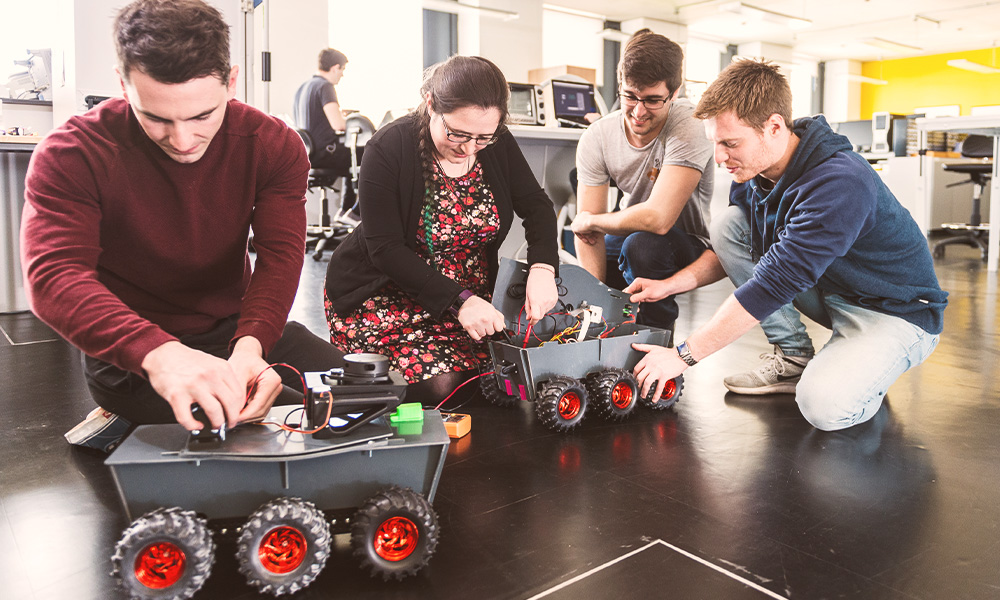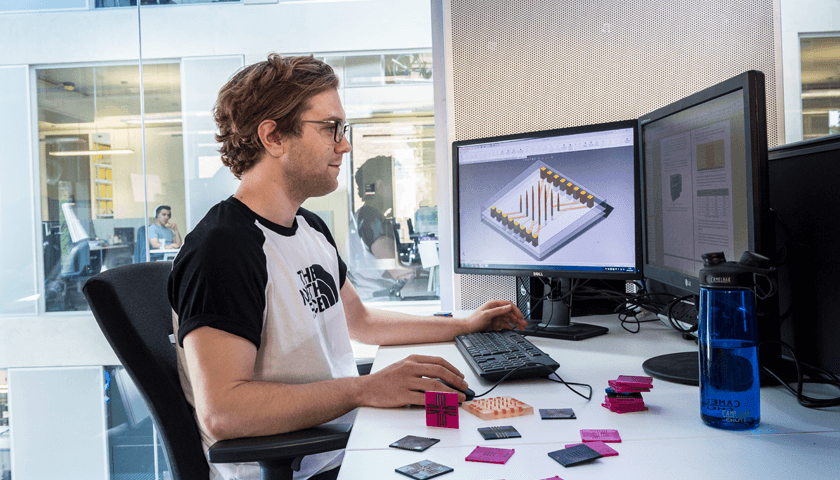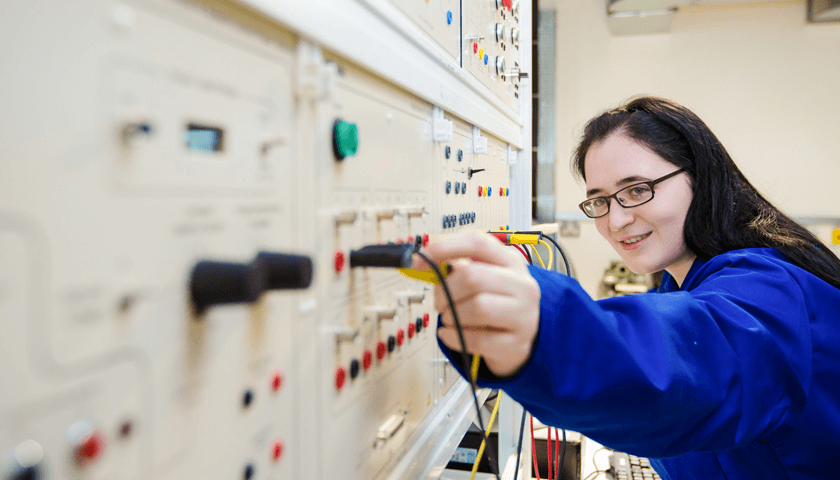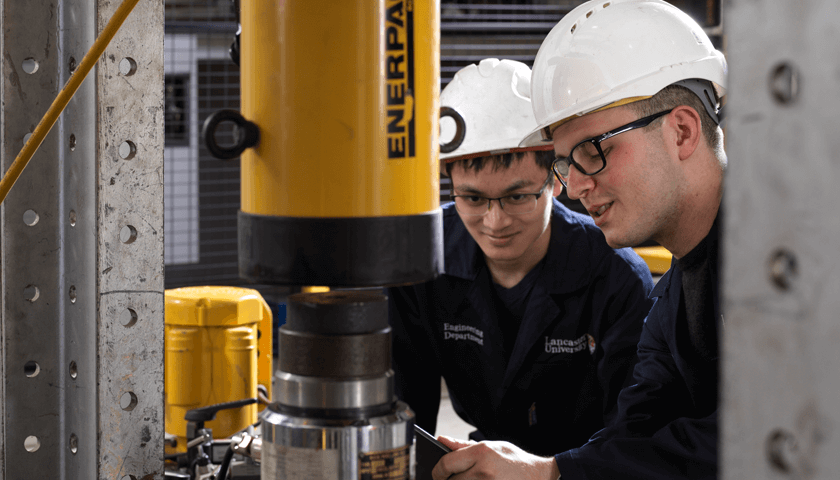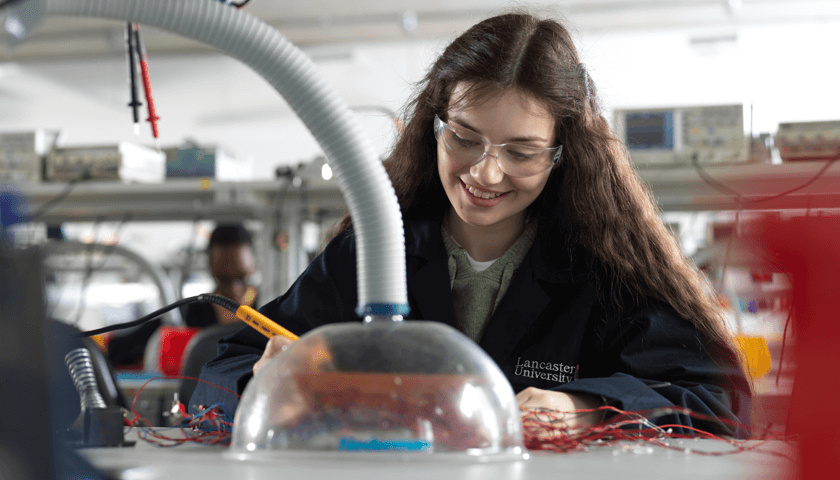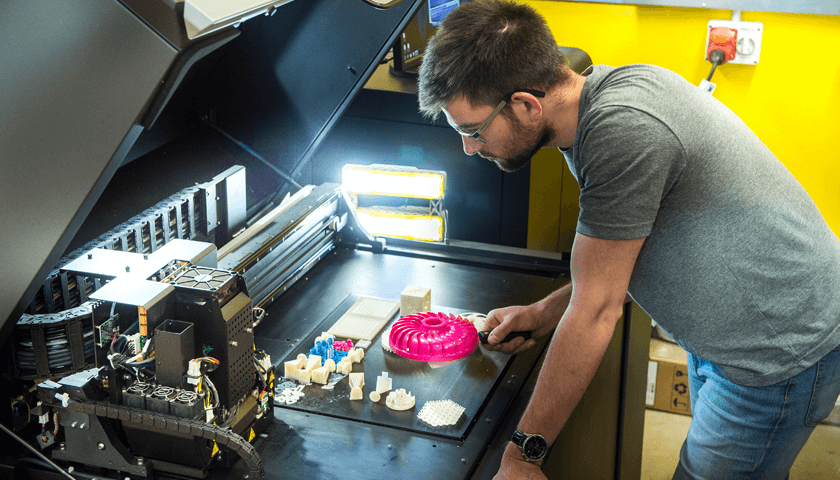Mechatronic engineering is the design of systems and products that require a combination of mechanical, electronic and computer engineering. It’s an interdisciplinary field and you might work on robotics, automation, artificial intelligence, digitally controlled engines and even self-driving cars. With the rapid evolution of AI, automation and advances in machinery and manufacturing, these highly skilled engineers are in demand. As a mechatronics graduate you are open to a rewarding career in these industry sectors and more.
In all fields of engineering, but especially mechatronics, it’s crucial to have a broad understanding of general engineering and its applications. At Lancaster, your first year is dedicated to exactly this, and you’ll share this experience with all our School of Engineering students, regardless of their specialisation. We think this makes you a well-rounded graduate, with excellent teamwork and communications skills, prepared for your future career.
What to expect
Our five-year BEng Hons Mechatronics with Placement Year degree starts with your general engineering first year and includes core themes of design, circuitry and instrumentation, programming and engineering science, along with mathematics.
In Year 2 is where you start to specialise and you will continue to learn core themes from mechanical and electronic engineering to ensure you retain the interdisciplinary focus of mechatronics. This will include system design, control and power electronics. Working in our two new engineering buildings with state-of-the-art facilities, you’ll develop your creativity and technical skills as you design, build and test to solve real-world problems. A particular highlight for our students is a team project where you design, build and test a small mobile robot capable of completing a set task. Previous examples have included transporting hazardous liquid waste and dribbling a ball and scoring a goal.
As you progress into third year, you begin to focus on more advanced technical material which is directly informed by some of the research we undertake, such as in mechatronic systems and automation. You will also complete a dissertation project that will refine your analytical and technical skills. This provides you with an opportunity to practise programming and design and gain valuable hands-on experience of the discipline.
Take further steps towards professional engineering with management skills, project management, and industry engagement. Sustainability, safety, ethics and quality management are kept in focus too.
Your placement
In Year 4, you will undertake a year in industry that will enable you to apply the knowledge and skills learnt so far and gain invaluable experience. We have extensive links built through our leadership in research and have students undergoing placements with multinational corporate companies to smaller specialist SMEs. Once you have completed your placement, you will write an extended reflective piece about your time spent with the company.
Master’s-level training
In your fourth year of study, you will gain a strong understanding of real-world engineering and hands-on experience in the profession through an industry-linked project, further building your confidence and preparing you for the workforce. You will also complete a comprehensive individual research project alongside specialist technical modules, allowing you to explore your interests and align them with your future career goals. Previous projects have included robotics for the inspection of wind turbine blades, novel embedded control of additive manufacturing technologies and health monitoring of aerospace systems. This year will solidify your knowledge, placing you in an excellent position to launch your engineering career and progress toward achieving Chartered Engineer status.
Personal development
You will develop valuable transferable skills that make you highly desirable to future employers, such as working in collaboration, communication, and the ability to design, build, and implement a system or device. You will grow interdisciplinary practical skills in diagnosis and testing, system maintenance, digital and computing proficiencies, and the ability to consider and maintain work safety practices in a range of environments. With a year’s experience added to your CV, you will be a standout graduate.
3 things our mechatronics students would like you to know
- All of us engineers share the same newly built facilities. We have access to the labs and maker spaces a lot of the time for both personal and academic use
- The dedicated engineering buildings are a great asset, and having access to facilities that reflect industrial working environments prepares you for moving into the workplace
- The multi-disciplinary first year is brilliant for future careers when project work will include colleagues from other engineering specialisms


